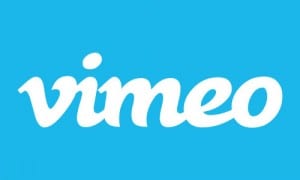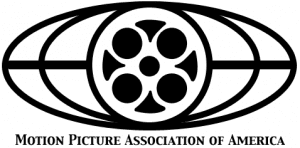4 Cases that Could Change DMCA Safe Harbor
 The Digital Millennium Copyright Act (PDF), which took effect in 1998, was a multi-part law that aimed at updating copyright for the digital age. Though it had many components to it, it is possibly best known for its safe harbor provisions, better known as the “DMCA Takedown” process.
The Digital Millennium Copyright Act (PDF), which took effect in 1998, was a multi-part law that aimed at updating copyright for the digital age. Though it had many components to it, it is possibly best known for its safe harbor provisions, better known as the “DMCA Takedown” process.
The idea behind safe harbor is fairly straight forward. Sites and services that host content at the request of users, including everything from YouTube to GoDaddy and Facebook, are granted legal protection (IE: Safe Harbor) from claims of copyright infringement should those users upload infringing material. This also removes any requirement for hosts to filter or monitor their sites for infringement.
In exchange for that, the hosts have to meet a set of criteria including having an agent designated to receive notices of copyright infringement, registering that person on the U.S. Copyright Office website, posting the information on their site, working expeditiously to remove allegedly infringing material when notified of infringements and having a policy to terminate access to repeat infringers among others.
Copyright holders, in turn, have the ability to file a proper DMCA notice and have the host either remove or disable access to the allegedly infringing material. If the person whose material was removed disagrees with the notice, they can file a counter-notice, after which the host can restore the material without risking liability (though they do not have to). If the content is restored, then the person making the original claim must seek an injunction from the courts.
Theoretically, the system is something of a win-win. Hosts and service providers get legal certainty in a previously gray area of the law and rightsholders get a quick and easy way to remove infringing material without going to court. However, not everyone has been happy with the process.
Users are often upset about false or questionable DMCA takedown notices. While they’re relatively rare, they do happen and non-infringing material does get removed (though the law does provide a means to punish those who file such notices). Rightsholders believe many sites abuse the DMCA to set up services that let them legitimately profit from copyright infringement (the most common target of this complaint being Grooveshark). Finally, service providers, especially large ones, find that the law can be burdensome, with Google, for example, processing millions of takedowns per week.
This discontent has been spawning an increasing number of legal challenges and, if you’ve been following copyright news, you’re likely aware that at least four potentially important cases have come to a head.
With that in mind, here’s a look at the cases and what they mean for yourself or anyone else who is either filing DMCA notices or seeking protection under safe harbor.
1. Hotfile DMCA Safe Harbor Dispute
 In February 2011, all five of the major movie studios joined forced to file a lawsuit against file locker service Hotfile. The studios accused Hotfile of enabling copyright infringement on a “mind boggling” scale and sought damages from it.
In February 2011, all five of the major movie studios joined forced to file a lawsuit against file locker service Hotfile. The studios accused Hotfile of enabling copyright infringement on a “mind boggling” scale and sought damages from it.
Hotfile, however, argued that it was a mere host and was protected under the DMCA safe harbor provisions. The studios, on the other hand, argued that Hotfile had lost that protection both when it failed to meet the standards in the DMCA and paid many copyright infringers through an affiliate program that rewarded those who uploaded files downloaded a large number of times.
The court, located in southern Florida, sided with the studios.
According to the judgment, Hotfile lost its safe harbor protection due to the fact it had an inadequate repeat infringer policy, having only terminated accounts of 43 infringers after over 10 million DMCA notices.
The court also noted that Hotfile did not immediately register a DMCA agent. Waiting until December 2009 to register one with the U.S. Copyright Office and did not list the information on their site until May 2010.
Because of this, Hotfile was found to be vicariously liable for copyright infringement, meaning they received benefit from the infringement, had the ability to stop it and did not do so. Other infringement issues may still be decided by a jury.
In a related note, the judge said that another issue, one involving whether Warner Brothers knowingly filed false DMCA notices through Hotfile’s takedown tool, would be an issue for a jury to decide. However, much of the detail on this portion was redacted out.
What it Means
When it comes to the DMCA, many hosts have tried to comply with the “spirit” of the law while ignoring many of the specifics.
However, now Hotfile is being taken to task for not complying with the repeat infringer policy and the requirement to designating an agent, making it more important than ever for hosts to ramp up their efforts at complying with the whole of the law, not just the “big ideas”.
As for Warner, though the final judgment is for a jury to make, it hints at the possibility that mistakes by machines can be just as dangerous legally as mistakes by people, making it crucial to ensure that your DMCA notices are accurate and proper.
2. Vimeo’s DMCA Battle
 Capital Records, among others, sued video sharing site Vimeo alleging that the company was streaming songs owned by the companies. Vimeo, however, claimed that it was protected by DMCA safe harbor and that it was not liable for the infringement.
Capital Records, among others, sued video sharing site Vimeo alleging that the company was streaming songs owned by the companies. Vimeo, however, claimed that it was protected by DMCA safe harbor and that it was not liable for the infringement.
On most of the files involved, 144, the courts agreed and granted a summary judgment saing Viemo was protected by the DMCA. However, for another 55, the court ruled that there was enough evidence that Vimeo wasn’t protected to make the issue triable, sending it to a possible jury trial.
The labels had tried to make a similar argument to the movie studios in the hotfile case regarding Vimeo’s repeat infringer policy. However, the court found that Vimeo’s policy was reasonably implemented, saying that there was a three strikes policy and users were tracked by email address (even if the labels would have preferred IP tracking).
However, the labels were more successful on the argument that Vimeo was at least possibly aware of the infringements and failed to take action, noting comments from Vimeo employees on infringing videos, inclusion in Vimeo-curated channels and that Vimeo employees took action to protect some of the videos, including whitelisting them and disabling the flagging feature.
Though it doesn’t mean Vimeo is liable yet, it means Vimeo has to try the issue before a full court.
What it Means
Though the final effects are yet to be determined, this is another case of judges taking a closer look at the specifics of how hosts comply with the DMCA and (possibly) stripping away protection when they feel the details aren’t complied with.
Here, the issue is the interaction the staff at Vimeo had with the infringing files. Until recently, the courts have more or less been stripping away the “red flag” provisions of the DMCA, making it almost impossible for a host to be found liable under it. This case has the potential, to a degree, to dial that back.
Though Vimeo’s case is somewhat unique because of Vimeo’s level of interaction, sites that offer a combination of curated and user-generated content are on the rise, meaning that they need to be careful when and how they interact with possibly infringing content.
3. The Blogger Battle Case
 Earlier this year I covered the story of two bloggers on opposites sides of the home birthing issue: Dr. Amy Tuteur and Gina Crosley-Corcoran.
Earlier this year I covered the story of two bloggers on opposites sides of the home birthing issue: Dr. Amy Tuteur and Gina Crosley-Corcoran.
Basically the two bloggers went back and forth until Crosley-Corcoran posted an image of herself making an obscene gesture directed at Dr Tuteur. Dr. Tuteur responded by reposting the image on her site and that prompted Crosley-Corcoran to file a DMCA notice with Dr. Tuteur’s host over the reuse of the image.
This prompted Dr. Tuteur to sue Crosley-Corcoran, claiming, in part, that Crosley-Corcoran had violated Section 512(f), the provisions that prohibit the filing of false DMCA takedown notices. However, after a series of amicus briefs from interested parties, including the MPAA and the EFF, the judge ruled in favor of Crosley-Corcoran on the fair use issue. The court decided that, even though the use of the image was likely a fair use, Crosley-Corcoran likely had a good faith reason to believe it was simply an infringement.
However, Dr. Tuteur still won the decision, but it was on an unrelated issue of an alleged material misrepresentation in the DMCA notice. Not the fair use issue.
What it Means
This lawsuit is following a similar trajectory to the Lenz v. Universal case (the “Dancing Baby” case) but is taking the matter even farther in many ways.
The long and short if it is that one of the more hotly-contested issue is when is a false DMCA notice actionable under 512(f). The fact that a file isn’t infringing simply isn’t enough. Since the Rossi case in 2004, when the 9th Circuit found that a claim under 512(f) required subjective bad faith, it has become more and more difficult to make a claim under that section.
In short, disputes over fair use, disagreements over what is and is not infringing, etc. can be resolved through the DMCA counter-claims process, but likely not Section 512(f). Those cases are likely to be reserved solely for those who knowingly and maliciously file false DMCA takedown notices, not those who simply make mistakes.
That being said, the Warner Brothers case above could adjust that even further, especially in cases where a DMCA filer behaves in a reckless manner.
4. The Grooveshark Pre-1972 Music Case
 Grooveshark is a well-known music streaming service that purports to be a “YouTube for audio” by letting users upload music tracks for others to stream. However, the service has been largely inundated with illegal tracks and thus has prompted a series of lawsuits from the record labels.
Grooveshark is a well-known music streaming service that purports to be a “YouTube for audio” by letting users upload music tracks for others to stream. However, the service has been largely inundated with illegal tracks and thus has prompted a series of lawsuits from the record labels.
However, the one that might have the biggest impact on safe harbor actually comes from the New York State Court system. There, the appellate court ruled against Grooveshark, siding with Universal Music Group, in saying that pre-1972 sound recordings are not covered under DMCA safe harbor.
We talked previously about the problems with Pre-1972 sound recordings but, to recap, before 1972 sound recordings were not protected under federal copyright and, instead, were covered under state copyright law. However, when Congress changed that for recordings after February 15, 1972, it didn’t retroactively place the older ones under federal jurisdiction.
This means the DMCA, which is a federal law, doesn’t necessarily apply to such sound recordings and, in turn, could cause a serious problem for those who seek safe harbor protection.
What it Means
What this means is unclear. If pre-1972 sound recordings do not qualify for DMCA safe harbor protection, it could cause major problems, especially for video and audio sites.
The problem is that the safe harbor provisions are supposed to prevent hosts from being required to monitor or filter out infringing material. However, if not all content is covered by it, they might have to anyway.
This is especially troublesome since pre-1972 sound recordings are not covered under one set of laws, but rather 50. Each state has their own take on how copyright is handled leading to a potential legal mess as sites and services try to figure out how to avoid legal liability.
Bottom Line
When it’s all said and done, there are a few key takeaways from these (and other) cases.
- It’s Getting More Difficult For Hosts: Hosts are finding it harder and harder to establish DMCA safe harbor protection as the courts are looking closer at the particulars of the law rather than the broad strokes.
- DMCA Safe Harbor Protection is Less Complete: With the Grooveshark ruling, it’s likely that a significant chunk of works could be removed from safe harbor protection, creating a significant gap in the law’s coverage.
- Host Involvement is Under Scrutiny: The Vimeo case highlights the danger of hosts getting too “hands on” with their content. Though the courts have yet to penalize sites that do so to proactively remove infringing material, interaction with infringing material without removal can be dangerous.
- Questionable DMCA Notices Are Less Actionable: Section 512(f) is becoming reserved for just the most egregious cases. Counter-notices are the tool for fair use and other disputes.
- Responsibility for Machines: That being said, the Warner case shows that humans are being held accountable for the errors their machines make, raising the importance of careful review.
All in all, whether you love or hate the DMCA safe harbor process, recent court rulings are impacting it and it is important to be aware of those changes.
Even if they don’t directly impact you yet, they could have major consequences down the line, especially as Congress is considering a rewrite of all U.S. copyright laws…
Want to Reuse or Republish this Content?
If you want to feature this article in your site, classroom or elsewhere, just let us know! We usually grant permission within 24 hours.
